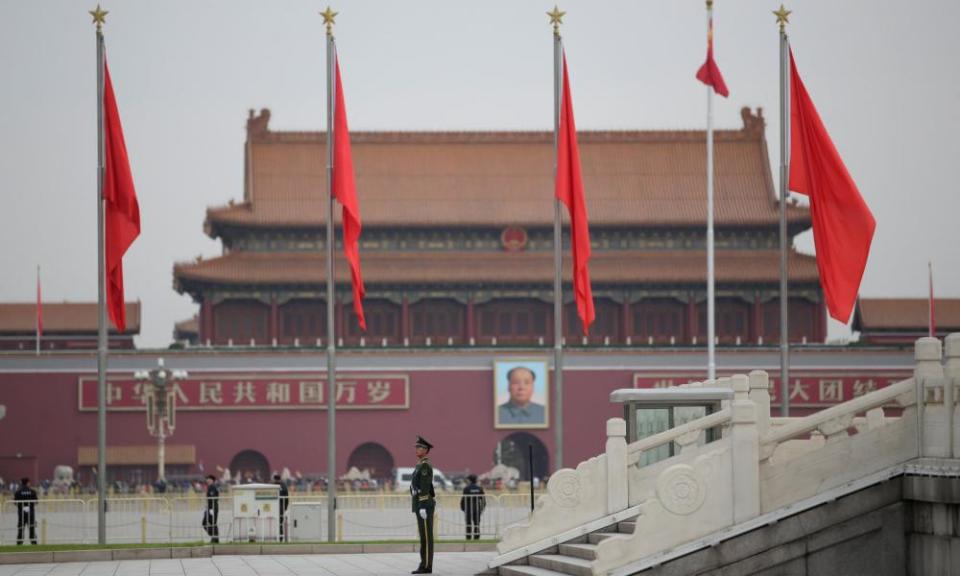Australia 'committed to' China extradition treaty, but opposition has heard nothing

Australia has told China it remains committed to ratifying a controversial extradition treaty it grounded earlier this year but the Labor opposition says there has been no fresh approach by the government to court its support.
The attorney general, George Brandis, said on Monday the Coalition remained committed to working towards ratification of the extradition treaty after details of a private meeting between Australian and Chinese ministers late last week were published by the Xinhua news agency.
Brandis and the foreign minister, Julie Bishop, met the secretary of China’s central political and legal affairs commission, Meng Jianzhu, late last week.
Xinhua published a weekend communique after the talks, which included a commitment to ratify the extradition treaty, and the Australian government then also publicly reconfirmed its intention to proceed.
But despite the appearance of momentum, a spokesman for Labor’s foreign affairs spokeswoman, Penny Wong, told Guardian Australia the government had not approached Labor to try and come to an agreement since abandoning the ratification earlier this year. Wong’s spokesman said: “Labor’s position has not changed.”
In addition to having to persuade Labor to back the treaty, the government also faces the risk of an embarrassing parliamentary debate over the extradition proposal, because a disallowance motion moved by the breakaway Liberal senator, Cory Bernardi, remains on the books.
The government pulled the treaty in late March, ostensibly because it lacked support from Labor for the ratification, but in reality, the situation was more complex. Liberals opposed to the treaty were also threatening to cross the floor to vote in favour of the Bernardi motion.
Tasmanian Liberal Eric Abetz raised his objections to the agreement in the Coalition party room and the former prime minister, Tony Abbott, intervened publicly to argue the treaty should not proceed.
“In my judgment, China’s legal system has to evolve further before the Australian government and people could be confident that those before it would receive justice according to law,” Abbott said just before the treaty was pulled.
When the government pulled the treaty ratification after the internal revolt, Bernardi agreed to defer his disallowance motion, not remove it form the notice paper, which means debate will proceed once federal parliament resumes, unless the Australian Conservatives senator agrees to withdraw the motion.
If that debate ultimately proceeds, dissenters will have the opportunity to express their objections to the treaty in the parliament – which would embarrass both the Australian and Chinese governments.

 Yahoo News
Yahoo News 